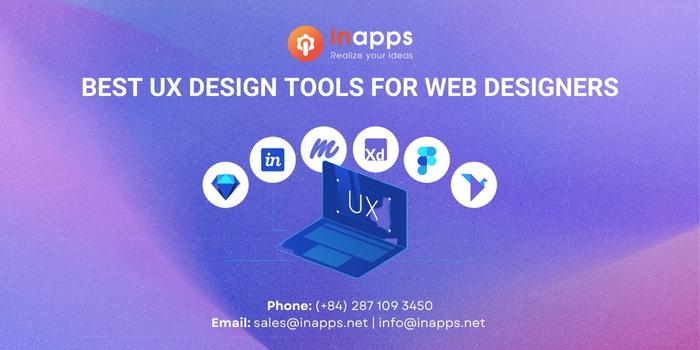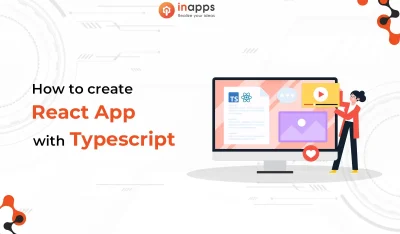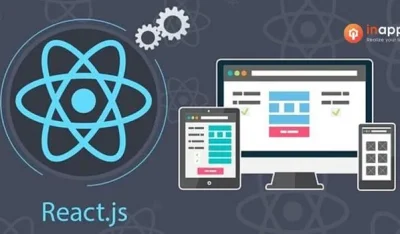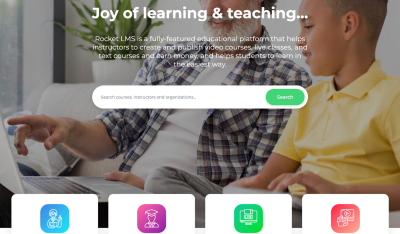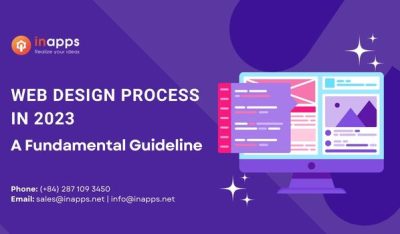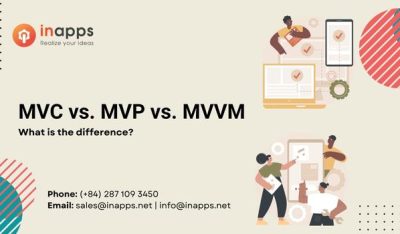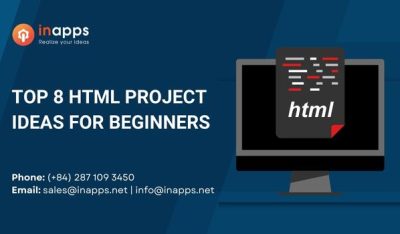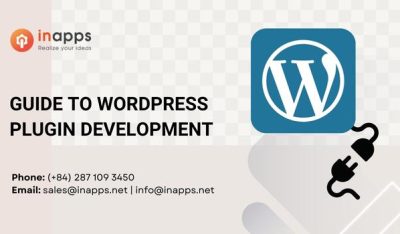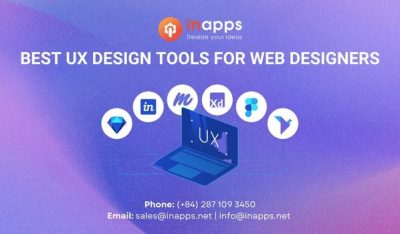- Home
- >
- Web Design & Development
- >
- Best UX Design Tools for Web Designers in 2022
Every step of the design and product development cycle is now aided by a variety of technologies, from preliminary whiteboard activities to functioning on the final piece. The accessibility and scalability of some UX design tools for web designers have never been better, making product development simpler and much more effective for everyone.
UX Design is a complex, multifaceted process that involves designing a user-friendly interface that gives customers the information they need and the actions they want. In order to be successful, UX Design decisions must be informed by evidence from multiple sources and guided by sound design principles.
Designers can use UI design tools to create realistic hi-fi wireframes, mockups, and prototypes, as well as build minimally viable products. As it is, it seems that nothing is impossible in the year 2022.
The greatest challenge in the design process is the thinking and vision of a company. Designers must create a strong concept and harness it through prototyping, testing, and refining. They need to be able to provide multiple design options and ensure they can meet all functional requirements while staying within budget.
When it comes to designing for the web, whether it be a mobile app or responsive website, there are a number of tools that can help take your design process well beyond what’s available with just the basic Adobe Suite.
In this article, we will talk about the UX design tools for web designers at great length to make some aspects of UX design tools clear to you! Let’s get started, shall we?
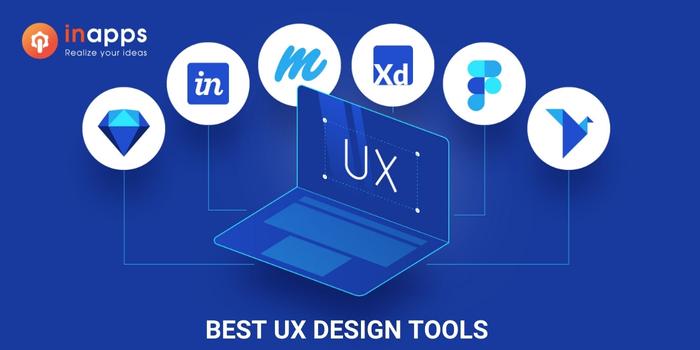
What tools do ux designers use?
What are UX design tools?
UX design tools are concerned with the user and how they will interact with the information. These tools can aid in the organization of information architecture as well as the flow of a user through the journey.
Because this is a more conceptual approach, UX tools assist a designer in painting a wider context of how content and structure will affect the user experience.
These tools can help designers create layouts and prototypes, structure information, and determine how a user will flow through the product. There are many tools available in the UX/UI designer space, catering to a wide range of users from beginners to experts.
What tools do UX designers use?
The UX Design tools list for 2022 is full of amazing web design tools that will improve the entire product design process, including sketching, prototyping, and user research.
Whether you’re a freelancer, independent designer, agency owner, or industry giant, there’s no doubt that these UX design tools can make your work easier and more efficient.
Adobe XD
Adobe XDIt is a user interface design platform for developing product prototypes, mobile applications, and websites. It gives designers the means they need to make fully functional prototypes, such as workflows, element formation, animated transitions, as well as other dynamic components.

What programs do UX designers use?
One of the advantages of adopting a product from an amazing package like Adobe is that they all work together seamlessly. While some tools, like Photoshop, are on the expensive side, larger businesses will find the Creative Cloud package appealing because numerous applications, such as Illustrator and InDesign, are available together.
Balsamiq
Balsamiq has long been regarded as the industry’s top wireframing tool, and the reason is pretty much known. Because of the hand-drawn layout, UX/UI designers have to keep their wireframes as low-fidelity as possible. This enables them to concentrate solely on functionality and user flow while minimizing visual elements.

Even for a UI designer with no technical experience, this design tool is popular for being one of the simplest to get started with.
It’s easy enough for people to rapidly make mockups while also giving sufficient icons and tools for designers to put their ideas on the web without sacrificing quality. It’s also favored among small teams and start-up businesses because of its low cost.
InVision
InVision provides designers with all of the UI design tools they need to develop fully completed and functional prototypes with dynamic features and animations because of its entire set of applications.

They make the interaction simple, too, with collaborative options that enable developers to publish their work as they build it, get comments, and make documented modifications at every stage.
The digital whiteboard enables teammates to put their suggestions out there, communicate, and gain that ever so important sign-off before proceeding ahead.
Framer X
Framer X has progressed since its inception as a code-only prototype tool. It now has a number of UI design tools for creating functional prototypes and usability testing. It’s React compatibility renders it excellent for UI designers who want to remain at the forefront of the latest web design trends.
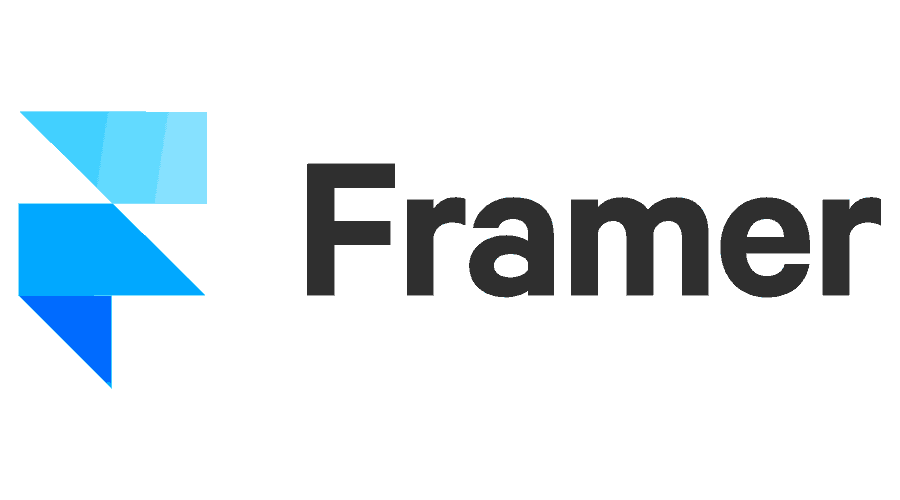
Framer X even has a plugin store with UI modules for connecting social media platforms like Snapchat and Twitter, players for embedding a range of media, grids, and other essential elements that can be simply incorporated for UI designers. It’s an excellent interface design tool with an easy learning process.
Figma
Figma is among the most widely used design programs and also a popular UX design tool for web designers in the market today.
It comes with a cloud-based design tool for developing and creating prototypes with beautiful design elements. Wireframes and other products such as mood boards can also be created with the software. The structure is expansive, allowing numerous revisions of a project to be put on the same page and easily compared.
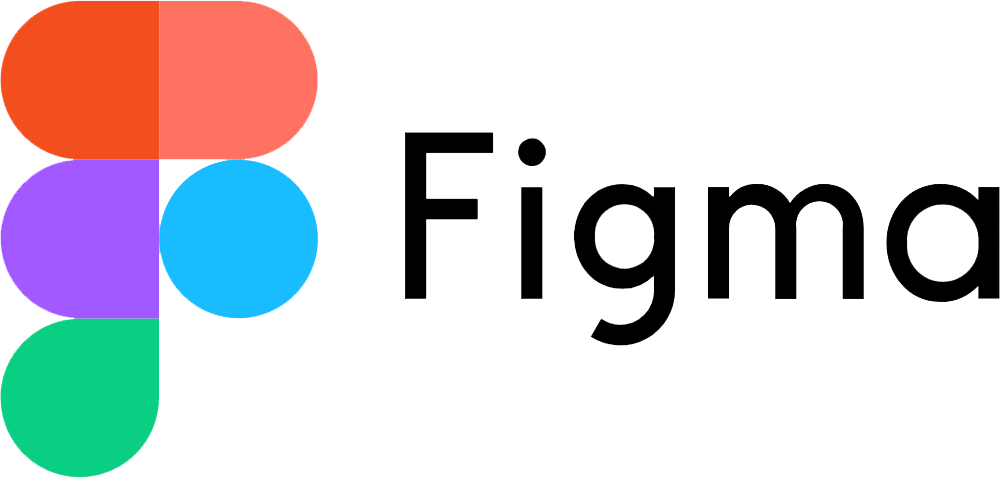
What software tools do UX designers use?
Figma’s collaborative features, which enable numerous users to make revisions to a design at the same time without having to download files locally, are one of its biggest selling points. Figma’s browser feature allows it to be used on a variety of operating systems. Finally, Figma works well with other tools like Maze, Zeplin, and more.
Marvel
Marvel is a one-stop-shop UX design tool for web designers that includes features for everything from design and wireframing to prototyping and user testing. Because the software is so easy to use, it’s ideal for swiftly creating prototypes and building basic, efficient user interfaces.

While Marvel provides tools for every stage of the design process, prototyping is its central concern. Users can use motions, import designs, integrate screen elements, and do whatever else is needed to quickly develop working prototypes.
While it isn’t as complicated as some of the other UX design tools in this article, it is a great alternative for inexperienced designers and developers who want to get up to speed quickly.
Origami Studio
Origami Studio is way more advanced than InVison, which is more user-friendly for beginners. Origami Studio has a lot to offer people that need a more advanced prototype tool for their design system.
This platform includes all of the tools needed to create comprehensive prototypes that are backed by a powerful patch editor, allowing designers to incorporate additional features. Prototypes take on the appearance and functionality of a genuine program or website.

Sketch and Origami Studio work well together. If you’re functioning in conjunction with Sketch, you’ll be able to bring in layers and copy and paste them without any problems.
Axure
Axure is a tool for developing wireframes and lo-fi prototypes that is simple to use without affecting quality & functionality. Users can use the software to swiftly develop prototypes with data-driven interactions without having to write any code.

Axure makes it especially simple to add elements like dynamic panels, animations, and graphic interactions that would otherwise take ages to put in place.
Axure, like the others on our list, allows numerous designers to collaborate on a single project file at the same time. Although its high-end pricing renders it more enticing to businesses, the final outcome is the speedy development of well-functioning prototypes.
UxPin
UXPin provides software designers with tools to take their designs from concept to completion, with a strong emphasis on the final result. Its prototypes are by far the most complicated, culminating in products that are just a smidgeon away from being fully functional.
Furthermore, even when interactions, animations, and other features are used, this final outcome may be produced without the requirement for designers to understand how to code. Even when creating high-fidelity prototypes, the tool’s drag-and-drop capability makes it incredibly simple to use.
Users can import their designs from other programs and seamlessly merge them. As a result, while adding useful functionality to static pictures, layers are not lost.
FlowMapp
FlowMapp provides a variety of UI/UX design tools and means to communicate, collaborate, and plan content. Focusing on UX tools, it uses a flowchart tool that helps organize the UI and UX of apps, digital services, and websites, as well as providing user research functionality.

The sitemap tool is extremely simple to use, allowing users to share and develop distinct pages, each with its own content and purpose. Its package provides other features, including the Personas function, which allows customers to create buyer personas. This makes it a good choice for smaller teams, as it helps to keep everyone on the same path.
TreeJack
A design’s visual elements are crucial, but it’s nothing more than an empty shell without strong content. It’s not enough to have good content; it also needs to be organized in a way that makes it as accessible as possible. This is where the concept of information architecture comes into play.

Treejack is a company that focuses on information architecture. It allows you to test a website’s tree structure with actual users. It then delivers results that indicate a user’s path and navigation through the content, providing you with useful information for editing and tweaking the content arrangement.
Proto.io
Proto.io is another excellent tool that allows UX/UI designers to produce high-quality prototypes while also being user-friendly. This is a difficult mix to carry out, but Proto.io pulls it off wonderfully, resulting in final projects that function and feel complete.

It’s especially popular among students because of its simple learning process and extensive range of tools for building up interactions within the prototype. Designers can plan, build, and even test hi-fi prototypes with Proto.io, which also allows for team communication throughout the procedure.
In A Nutshell
We have so far covered only a limited number of UX design tools for web designersin this article. There are a few things to keep in mind while selecting your tools. First and foremost, what types of projects will your emphasis be on?
Do you require tools that can be used to create websites, mobile applications, or both? Of course, you should double-check that the tools you select are appropriate with the computer or system you’re using. Also, did you know that emotions play an important role in UX Design?
Along with conducting extensive research, it’s also a good idea to speak with seasoned UI designers to learn about the tools they suggest. However, the one and the only way to determine whether tools are right for you is to try them out, so register for as many free trials as you can!
Most products come with their own guidelines and instructions, and video tutorials are a terrific way of learning the fundamentals. Experiment around with a few different apps and you’ll quickly figure out which functionality and user interfaces you like.
Keep reading InApps to stay updated on your tech game!
FAQ’s
How to choose the best Ux design tools?
One must choose the best design tools based on their requirements from any project.
What is the important feature of any Ux design tool?
UX Design is a complex, multifaceted process that involves designing a user-friendly interface that gives customers the information they need and the actions they want. In order to be successful, UX Design decisions must be informed by evidence from multiple sources and guided by sound design principles.
How can designers use these tools to create a better experience?
Designers can use UI design tools to create realistic hi-fi wireframes, mockups, and prototypes, as well as build minimally viable products.
List of Keywords users find our article on Google
Let’s create the next big thing together!
Coming together is a beginning. Keeping together is progress. Working together is success.




